Filter by
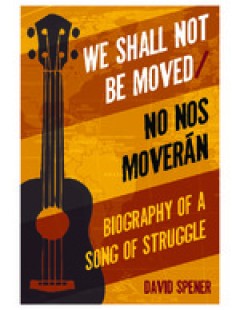
We Shall Not Be Moved/No Nos Moverán
We Shall Not Be Moved: The Trail Blazed by a Song from the U.S. South to Spain and South America details the history of "We Shall Not Be Moved" from its birth as a slave spiritual in the U.S. South and its subsequent adoption as a standard hymn by the U.S. labor, civil rights, and farmworker movements, to its singing in the student movement opposing the Franco dictatorship in Spain in the 1960s…
- Edition
- -
- ISBN/ISSN
- 9781439912997
- Collation
- Knowledge Unlatched (KU)
- Series Title
- -
- Call Number
- -
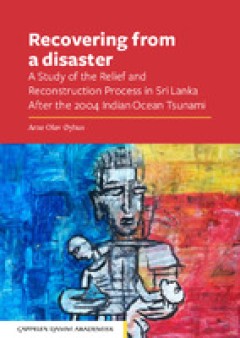
Recovering From a Disaster; A study of The Relief And Reconstruction Process …
On 26 December 2004 at 6.58 hours (Sri Lanka Time), a massive earthquake with its epicentre outside the coast of Sumatra generated a series of gigantic waves, tsunamis. At 8.35 hours the waves reached the eastern and southern coastline of Sri Lanka, crushing hundreds of villages and towns, killing and maiming tens of thousands of people within seconds. When the waves pulled back, and the ocean …
- Edition
- -
- ISBN/ISSN
- -
- Collation
- -
- Series Title
- -
- Call Number
- -
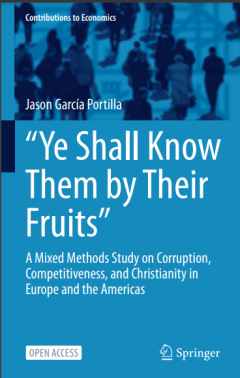
“Ye Shall Know Them by Their Fruits” A Mixed Methods Study on Corruption…
Why are historically Catholic countries and regions generally more corrupt and less competitive than historically Protestant ones? How has institutionalization of religion influenced the prosperity of countries in Europe and the Americas? This open access book addresses these critical questions by elucidating the hegemonic and emancipatory religious factors leading to these dissimilarities b…
- Edition
- -
- ISBN/ISSN
- 9783030784980
- Collation
- XXXVI, 407 p ; ill
- Series Title
- -
- Call Number
- 201.73 SHA J
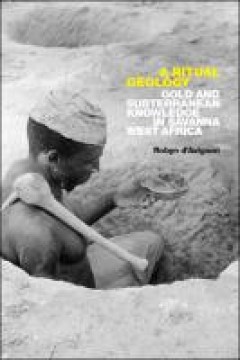
A ritual geology : gold and subterranean knowledge in Savannah West Africa
Robyn d’Avignon tells the history of West Africa’s centuries-old indigenous gold mining industries and its shared practices, prohibitions, and cosmological engagements.
- Edition
- 4
- ISBN/ISSN
- 9781478092674
- Collation
- xvii, 329p.; ill.
- Series Title
- -
- Call Number
- 338.2741096 RIT d
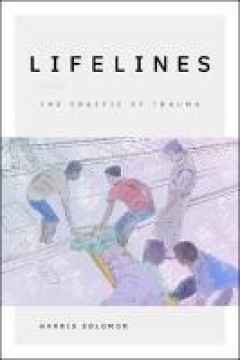
Lifelines : the traffic of trauma
Harris Solomon takes readers into the trauma ward of one of Mumbai’s busiest public hospitals, narrating the stories of the patients, providers, families, and frontline workers who experience and treat traumatic injury from traffic .
- Edition
- 2
- ISBN/ISSN
- 9781478092728
- Collation
- xi, 305p.; ill.
- Series Title
- -
- Call Number
- 363.125650954792 LIF s
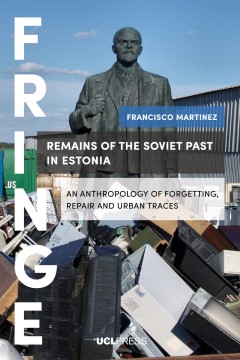
Remains of the Soviet past in Estonia : an anthropology of forgetting, repair…
What happens to legacies that do not find any continuation? In Estonia, a new generation that does not remember the socialist era and is open to global influences has grown up. As a result, the impact of the Soviet memory in people’s conventional values is losing its effective power, opening new opportunities for repair and revaluation of the past. Francisco Martinez brings together a numb…
- Edition
- -
- ISBN/ISSN
- 9781787353534
- Collation
- xix, 255 p. ill;
- Series Title
- -
- Call Number
- 974.98 REM F

The small matter of suing Chevron
Suzana Sawyer traces Ecuador’s lawsuit against the Chevron corporation for the environmental devastation resulting from its oil drilling practices, showing how distinct legal truths were relationally composed of, with, and through crude oil.
- Edition
- 4
- ISBN/ISSN
- 9781478092612
- Collation
- xiii, 417p.; ill.
- Series Title
- -
- Call Number
- 305.563309 SMA s

Genres of listening : an ethnography of psychoanalysis in Buenos Aires
Xochitl Marsilli-Vargas explains how psychoanalytic listening practices have expanded beyond the clinical setting to influence everyday social interactions in Buenos Aires.
- Edition
- 2
- ISBN/ISSN
- 9781478092698
- Collation
- ix, 249p.
- Series Title
- -
- Call Number
- 153.733 GEN m
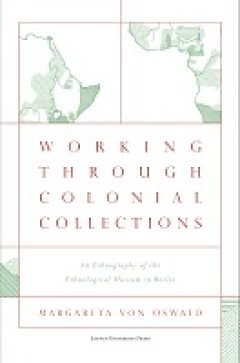
WORKING THROUGH COLONIAL COLLECTIONS : an ethnography of the ethnological mus…
Reckoning with colonial legacies in Western museum collections What are the possibilities and limits of engaging with colonialism in ethnological museums? This book addresses this question from within the Africa department of the Ethnological Museum in Berlin. It captures the Museum at a moment of substantial transformation, as it prepared the move of its exhibition to the Humboldt Forum, a new…
- Edition
- 1
- ISBN/ISSN
- 9789462703100
- Collation
- 321p.; ill.
- Series Title
- -
- Call Number
- 301 WOR v

Bronze Age Maritime and Warrior Dynamics in Island East Asia
Recent interdisciplinary studies, combining scientific techniques such as ancient DNA analysis with humanistic re-evaluations of the transcultural value of bronze, have presented archaeologists with a fresh view of the Bronze Age in Europe. The new research emphasises long-distance connectivities and political decentralisation. 'Bronzisation' is discussed as a type of proto-globalisation. In th…
- Edition
- -
- ISBN/ISSN
- 9781108982955
- Collation
- 82 p ; ill
- Series Title
- -
- Call Number
- 959 BRO M
 Computer Science, Information & General Works
Computer Science, Information & General Works  Philosophy & Psychology
Philosophy & Psychology  Religion
Religion  Social Sciences
Social Sciences  Language
Language  Pure Science
Pure Science  Applied Sciences
Applied Sciences  Art & Recreation
Art & Recreation  Literature
Literature  History & Geography
History & Geography